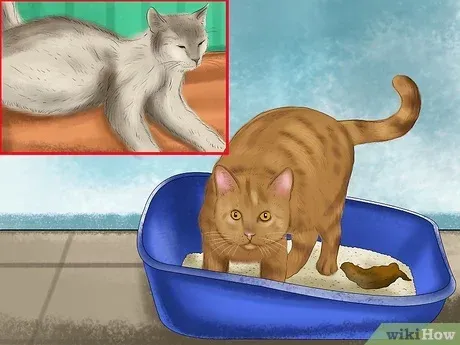furry friend's health and well-being depend on the food you provide.
A balanced and healthy diet is crucial for a cat's growth, development, and overall health. However, some cats are prone to allergies that can have a significant impact on their quality of
life. In this blog post, we'll delve into common cat food allergies and how feeding your cat a healthy diet can help prevent and manage them.
Common Cat Food Allergies
Food allergies are an immune system response to a specific protein, carbohydrate, or other ingredient found in cat food. Here are some of the most common cat food allergens:
- •Protein - Some cats may have allergies to certain proteins found in cat food, such as chicken, beef, or fish.
- •Grains - Corn, wheat, and soy are common allergens for cats.
- •Dairy Products - Cats can also develop allergies to dairy products like milk and cheese.
Symptoms Of Cat Food Allergies
If your cat has a food allergy, you may notice several symptoms, including:
- •Skin irritations: itching, redness, and inflammation
- •Gastrointestinal problems: vomiting, diarrhea, or both
- •Respiratory issues: coughing, sneezing, or runny nose
- •Changes in behavior: lethargy, depression, or aggression
Diagnosing Cat Food Allergies
Diagnosing cat food allergies can be a complicated process, and it's essential to work with your veterinarian to determine the best approach for your cat. Your veterinarian may recommend a food trial, which involves eliminating potential allergens from your cat's diet and replacing them with a novel protein source, such as venison or duck. A food trial typically lasts several weeks, during which you will closely monitor your cat for any improvements or worsening of symptoms.
In some cases, your veterinarian may also recommend a blood test or a skin test to determine whether your cat has a food allergy. A blood test measures the level of antibodies in your cat's blood, while a skin test involves injecting small amounts of suspected allergens under your cat's skin to observe any reactions.
It's essential to note that while blood and skin tests can be helpful in diagnosing food allergies, they are not always 100% accurate. The best approach is often to combine these diagnostic tests with a food trial and close observation of your cat's symptoms.
If your cat is diagnosed with a food allergy, your veterinarian will work with you to develop a treatment plan that may involve eliminating the allergen from your cat's diet or switching to hypoallergenic cat food. It's crucial to follow your veterinarian's recommendations and monitor your cat's health closely to ensure they are getting the nutrition they need and are free from symptoms.
How To Prevent Cat Food Allergies
Preventing cat food allergies is possible by taking these steps:
- •Choose the best healthy food for cats that doesn't contain common allergens
- •Introduce new foods gradually to avoid sudden reactions
- •Avoid feeding your cat table scraps or human food
- •Provide a variety of foods to ensure a balanced diet
Importance Of Feeding Your Cat A Healthy Diet
A healthy diet is crucial for a cat's growth and development. Feeding your cat a balanced and nutritious diet can help prevent allergies and other health issues. Here are some benefits of a healthy cat diet:
- •Promotes Healthy Weight And Prevents Obesity - A healthy diet is essential for maintaining your cat's ideal body weight and preventing obesity. Obesity can lead to a range of health problems, including diabetes, arthritis, and heart disease.
- •Supports Healthy Organ Function - A well-balanced diet that is rich in essential nutrients, such as protein, vitamins, and minerals, can help support healthy organ function in your cat. This
includes everything from their digestive system to their immune system.
- •Improves Overall Quality Of Life - Feeding your cat a healthy diet can have a significant impact on their overall quality of life. A nutritious diet can help prevent health issues, improve energy
levels, and promote a healthy coat and skin.
Feeding Your Cat A Healthy Diet
Feeding your cat a healthy diet can help prevent and manage food allergies. Here are some tips to ensure your cat's diet is healthy:
- •Look for high-quality, healthy cat food that meets your cat's nutritional requirements
- •Choose cat food that doesn't contain common allergens
- •Avoid artificial preservatives, colors, and flavors
- •Feed your cat according to their age, weight, and activity level
In conclusion, feeding your cat a healthy diet is essential for their overall health and well-being.
Understanding common cat food allergies and taking steps to prevent and manage them can help your cat live a happy and healthy life. If you suspect that your cat has a food allergy, talk to your veterinarian for advice on the best course of action.




















 sunrise
StableDiffusion
sunrise
StableDiffusion
 bonfire friends
StableDiffusion
bonfire friends
StableDiffusion
 sadness
StableDiffusion
sadness
StableDiffusion

 purple skies
StableDiffusion
purple skies
StableDiffusion

 true love
StableDiffusion
true love
StableDiffusion
 My Cheerleader
StableDiffusion
My Cheerleader
StableDiffusion
 womans transformation to happiness and love
StableDiffusion
womans transformation to happiness and love
StableDiffusion
 future life together of adventures
StableDiffusion
future life together of adventures
StableDiffusion

















